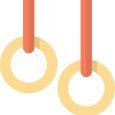
Introduction
Data collection skills are a vital aspect of gathering relevant and reliable information from various sources. In today’s data-driven world, the ability to collect, analyze, and interpret data is crucial for making informed decisions and deriving valuable insights. This article explores the significance of data collection skills, their types, development, challenges, best practices, tools, real-world applications, and future trends.
Understanding Data Collection Skills
Data collection skills refer to the competencies required to effectively collect data while adhering to specific methodologies and principles. These skills involve not only the technical know-how of data collection tools but also the ability to design appropriate research methods and interpret the data accurately.
Importance of Data Collection Skills
Data collection skills are essential because they lay the foundation for well-informed decision-making. Whether in business, academia, healthcare, or any other field, data-driven insights can drive innovation, improve processes, and optimize outcomes.
Types of Data Collection Skills
4.1. Research and Survey Design
This skill involves formulating research questions and designing surveys that generate the necessary data to answer those questions effectively.
4.2. Data Gathering Techniques
Data gathering techniques encompass a range of methods such as interviews, observations, focus groups, and online data scraping to collect information from diverse sources.
4.3. Data Validation and Verification
Validating and verifying data is crucial to ensure accuracy and reliability. Skilled data collectors meticulously examine and authenticate the data they collect.
4.4. Data Analysis and Interpretation
Proficient data analysts possess the ability to analyze and interpret complex data sets, making sense of the information to draw meaningful conclusions.
Developing Data Collection Skills
5.1. Continuous Learning and Upgrading
Data collection methods and technologies evolve rapidly. Skillful individuals invest time in continuous learning and stay updated with the latest trends.
5.2. Practical Experience and Hands-On Projects
Practical experience through real-world projects sharpens data collection skills and boosts confidence in handling diverse data scenarios.
5.3. Emphasizing Attention to Detail
Data collection requires precision. Paying close attention to detail ensures data accuracy and minimizes errors.
5.4. Effective Communication and Collaboration
Data collectors need to work with diverse teams. Strong communication and collaboration skills facilitate seamless data gathering processes.
Challenges in Data Collection
6.1. Bias and Ethics
Bias in data collection can lead to skewed results. Ethical considerations are crucial to maintaining data integrity.
6.2. Data Security and Privacy Concerns
Data breaches and privacy issues are significant challenges. Ensuring robust data security measures is imperative.
6.3. Data Integrity and Accuracy
Maintaining data integrity and accuracy requires a vigilant approach to minimize errors and discrepancies.
6.4. Technological Limitations
Rapid technological advancements can outpace data collection methods. Overcoming technological limitations is crucial for staying relevant.
Best Practices for Data Collection
7.1. Clearly Defined Objectives
Establishing clear objectives before data collection helps focus efforts and ensures meaningful results.
7.2. Choosing Appropriate Data Collection Methods
Selecting the right data collection methods based on the research requirements enhances the effectiveness of the process.
7.3. Pilot Testing
Conducting pilot tests before full-scale data collection identifies potential issues and allows for necessary adjustments.
7.4. Standardization and Documentation
Standardizing data collection procedures and documenting the process ensures consistency and transparency.
Data Collection Tools and Technologies
8.1. Online Surveys and Questionnaires
Online surveys and questionnaires streamline data collection from large groups of respondents.
8.2. Mobile Data Collection Apps
Mobile apps enable data collection in the field, facilitating real-time data capture.
8.3. Sensor-Based Data Collection
Sensor-based data collection leverages IoT devices to gather data from various environments.
8.4. Big Data and Artificial Intelligence
Big data and AI technologies process vast amounts of data, providing valuable insights and patterns.
Real-World Applications of Data Collection Skills
9.1. Market Research and Customer Insights
Data collection is crucial in understanding market trends and customer preferences.
9.2. Healthcare and Medical Research
Medical studies rely on accurate data collection for advancements in patient care.
9.3. Social Sciences and Behavioral Studies
Data collection in social sciences aids in understanding human behavior and societal trends.
9.4. Environmental Monitoring and Conservation
Gathering environmental data contributes to conservation efforts and sustainability.
Future Trends in Data Collection
10.1. Internet of Things (IoT) and Data Connectivity
IoT devices will revolutionize data collection, connecting various objects to gather real-time data.
10.2. Predictive Analytics and Machine Learning
Predictive analytics and ML algorithms will enhance data analysis and decision-making.
10.3. Enhanced Data Visualization and Reporting
Advanced data visualization techniques will simplify complex data representation.
10.4. Ethical and Transparent Data Practices
Data collection will emphasize ethical considerations and transparent data-sharing practices.
Conclusion
Data collection skills are the backbone of effective decision-making and insightful analysis. As technology and data continue to shape our world, mastering these skills becomes increasingly crucial. By understanding the types of data collection skills, the challenges involved, and the best practices, individuals can harness the power of data for better outcomes in various domains.
FAQs
Q1: Can I improve my data collection skills without formal training?
A1: Absolutely! Continuous learning through online resources and practical projects can significantly enhance your data collection skills.
Q2: What are some common mistakes to avoid in data collection?
A2: Avoiding leading survey questions, insufficient data validation, and neglecting ethical considerations are some common mistakes to avoid.
Q3: How can data collection skills benefit businesses?
A3: Data collection skills help businesses gain insights into customer behavior, market trends, and operational efficiencies.
Q4: What are some upcoming data collection trends?
A4: The rise of IoT devices, AI-driven analytics, and focus on data ethics are notable trends in data collection.
Q5: Can data collection skills be applied in academic research?
A5: Yes, data collection skills are fundamental in conducting research and experiments across various academic disciplines.




